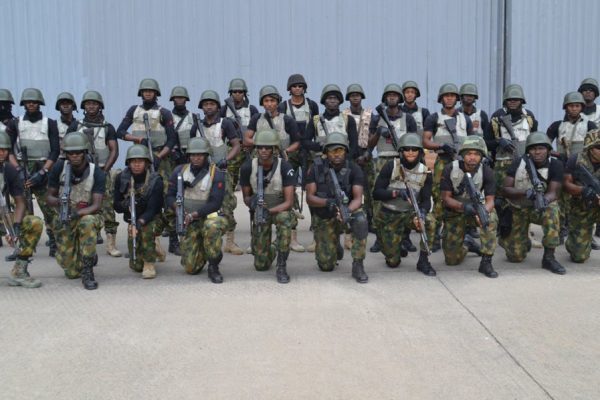by Isi Esene
The Federal Government is proposing a law to penalize military personnel who violate the rules of engagement in their activities within a civilian population during disturbances.
The bill was sent to the National Assembly for deliberation and passage to punish offenders who unjustifiably attack civilians.
The proposed law known as ‘A Bill for an Act to provide for the Enforcement and Punishment of Crimes Against Humanity, War Crimes, Genocide and Related Offences, and to Give Effect to Certain Provisions of the Rome Statute of the International Criminal Court in Nigeria, 2012,’ seeks to provide avenues to punish violators of international law and to consummate Nigeria’s cooperation with the International Criminal Court (ICC) in the performance of its functions.
Mr. Mohammed Bello Adoke (SAN), the Attorney General of the Federation (AGF) and Minister of Justice, confirmed the processing of this bill last Monday at the opening session of the Annual General Conference of the Nigerian Bar Association (NBA).
According to reports, military actions punishable under the proposed bill include rape, torture, murder, extermination, deportation or forcible transfer of populations, enslavement, imprisonment, sexual slavery, enforced prostitution, forced pregnancy or enforced sterilization or any form of sexual violence of comparable gravity.
Analysts believe that when eventually signed into law, the bill will serve to curb the excesses of members of military task forces deployed to quell activities of violent insurgents within civilian populations especially in the northern part of the country where the activities of military insurgents is more painfully experienced.
Recently, there have been complaints by stakeholders in several communities hosting men of the Joint Task Force (JTF) of extra-judicial killing of individuals suspected to be members of the militant Islamic group, Boko Haram.
In Borno State, stakeholders have accused the JTF of systematically engaging in genocidal activities against certain tribes, an accusation which has been vehemently denied by JTF spokesmen.
In a statement signed by the leader of the Borno Elders Forum, Shettima Ali Monguno, the group said, “The killings run into hundreds, and it seems the people are facing genocide.”
Also, the military campaign against militants in the Niger Delta reportedly violated international law, particularly in Ayokoroma, Okerenkoko and Gbaramatu Kingdom in Delta State, which were badly damaged during the manhunt for militant leaders, John Togo and Tompolo.
The bill recommends stringent punishments for violators. For an offense which does not involve willful killing of civilians, the bill stipulates an “imprisonment for a term not exceeding 30 years or a term of life imprisonment when justified by the extreme gravity of the offense and the individual circumstances of the convicted person.”
The Bill also states that the laws of Nigeria relating to parole, remission, reduction, or variation of sentence and pardon do not apply to a sentence imposed by the Criminal Court.
When finally passed into law, the bill will allow the siting of an ICC in the country to take evidence, conduct proceedings, give judgments, or review sentences imposed by it.
The Chief Prosecutor of the ICC, Mrs. Fatou Bensouda, had in July visited Nigeria when she disclosed that the ICC had put Nigeria under preliminary examination due to the Boko Haram insurgency in the North and the measures taken by the government to quell the insurgence.













What about law permitting soldiers to make love to horses, mules and donkeys.
This is a very encouraging development.For too long the men of the force have flagrantly violated the rights of inoccent Nigerians,they have been used by different regimes(civilian/military)to perpetuate unimaginable acts of violence and oppression…they have created a repressed society that is very undemocratic.
If this turns into a law, what would remain of the Martial Courts?
So if this law comes into existence, wat would be of the martial court?